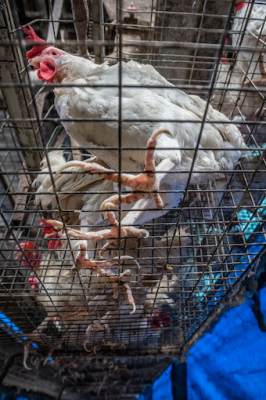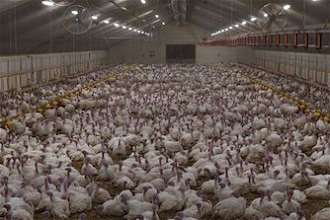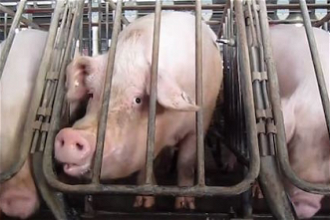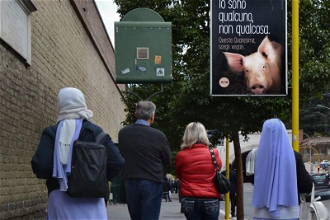South African reflection: Structural sin and slaughter of sentient animals

Battery chickens. Photo by Jo-Ann MacArthur on Unsplash
A few weeks ago, I heard a thought-provoking homily about structural sin. This means we have communal responsibility for sinful actions originating from social systems.
The priest used the apposite example of white South Africans, who benefited from the oppressive apartheid system: "They were complicit in structural sin, even if many of these white South Africans did not commit individual acts of injustice against black South Africans."
Perhaps many white South Africans have not adequately acknowledged or atoned for their complicity in the structural sin of apartheid - possibly because, as the priest explained, the "real danger of structural sin is that we usually do not recognise it." He also referred to the more recent phenomenon of state capture as a form of structural sin: "For a long time, South Africans have not recognised it for what it is. We have been blind."
The priest said that the best way of learning is by being willing to listen, with open minds, to people with different perspectives. We were urged to listen to others to learn about structures of sin in which we may be complicit.
In the book of Jonah, the prophet records that God said: "And am I not to pity Nineveh, the great city, in which there are more than 120,000 people … to say nothing of all the animals."
From this and other scriptural texts, we know that God is concerned about the plight of animals - as much his creatures as we are. Perhaps the time has come to reflect on our complicity in the suffering experienced by animals reared at factory farms and slaughtered at abattoirs.
Over 80 billion land animals (and innumerable marine animals) are killed annually for human consumption. It is not only the scale of the slaughter that should give us pause but also the distress inflicted on these sentient creatures. The horrors that characterise industrial meat production are catalogued widely, e.g. Yuval Noah Harari "Industrial farming is one of the worst crimes in history" The Guardian 25 September 2015; Jonathan Anomaly "What's wrong with factory farming?" (2015) 8 Public Health Ethics 246; Sr Lucille C Thibodeau pm "All creation groans: The lives of factory farm animals" (2017) 13 Rivier Academic Journal 1; Christopher Steck SJ All God's Animals: A Catholic Theological Framework for Animal Ethics (2019).
Pope Francis's encyclical Laudato Si' (2015) emphasises that humans are obliged to care for the rest of creation and pertinently asks: "How then can we possibly mistreat [animals] or cause them harm?" The Catechism of the Catholic Church declares that people may not "cause animals to suffer or die needlessly."
Has the time not come for us to consider whether killing animals to eat them, when there is no need to do so, is not inconsistent with these injunctions - primarily because of the cruelty inherent in the factory farm industry (see Andrew Tardiff "A Catholic case for vegetarianism" (1998) 15 Faith & Philosophy 210 at 218; John Berkman "The consumption of animals and the Catholic tradition" 7 Logos: A Journal of Catholic Thought & Culture 174).
God gave Adam dominion over the fish of the sea, the birds of the air, and every living upon the earth (Genesis 1:26-28). But that does not mean God intended Adam to kill and eat creatures.
Pope St John Paul II wrote in Love and Responsibility (1993) that "since [animals] are beings endowed with feeling and sensitive to pain, man is required to ensure that the use of these creatures is never attended by suffering or physical torture."
Pope Benedict XVI questioned factory farms' treatment of animals. Referring to the "industrial use of creatures", he said that "this degrading of living creatures to a commodity seems to me to contradict the relationship of mutuality that comes across in the Bible" (Anatoly Angelo R Aseneta "Laudato Si' on non-human animals". 6 Journal of Moral Theology 230 at 241-242).
Must we not reflect carefully on the morality of the commercial meat trade and our acquiescence in its excesses? Should we not at least consider the possibility that rearing and killing animals for eating them might be a form of structural sin, especially when it is done in the manner customary at industrial factory farm operations?
Let us recognise industrial meat (dairy and egg) production for what it is. Let us not be blinded by wilful ignorance.
Follow The Jesuit Institute on Twitter @JesuitInstitute


















